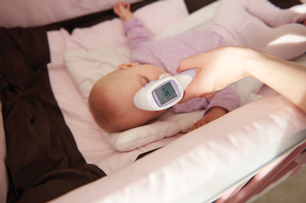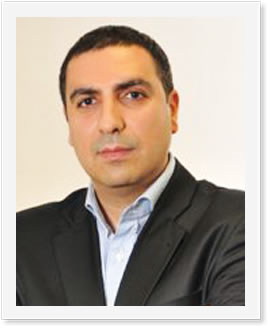
Technology has greatly affected people’s lives from the past to the present. Thanks to the nature of being human, their curiosity results in scientific researches.
The word “technology” is derived from Ancient Greek words “tekhne” (to do) and “logos” (to know). It is the essential knowledge and talent to make tools.
The key characteristic of the industry is to be able to develop technologies. Nations should develop technologies and apply their knowledge on product design to provide a competitive advantage and deterrence. Therefore, there is a direct relation between a country’s development and technological progress.
In today’s world, the reputation and the position of a country are closely related to its technological development. Fast and effective communication and digital programming that has become more and more present in the 21st century actually make up the electronic infrastructure base of other products that aim to make our lives easier.
It is safe to say that electronic equipment used to care for babies are mainly focused on health, safety, and feeding. The most common examples of them can be listed as digital thermometers, baby monitors, sterilization machines, digital baby food heaters, baby food makers, and nebulizers. Unfortunately, we can see that this kind of products does not have a long history in the Turkish market. But as time passes by, increasing welfare and level of education, and working mother factor makes their time more valuable and help these products be considered as necessary.
The most important of baby products among the others is that their targets are the parents, and the purpose of use is baby care which is a sensitive matter. Therefore, safety, conforming to certain quality standards and providing customer care attentively shine out among other priorities.
But still, insufficient inspection of the imported products still exists as a major problem in the industry. While there are standards for the majority of the products that are manufactured/imported, many products of mostly Far-Eastern origin that do not conform to these standards and that create an unfair competitive environment are put on the market.
Even though it cannot be ignored that the Market Surveillance and Inspection departments under the Ministry of Economics and Customs operate a market surveillance program, it is a sad fact that products that do not meet the qualifications and may cause harm can still be found in the market. BAGIDER works as efficient as it can to raise awareness and to make sure the inspections are made conveniently.
Another current and important topic that concerns electronic products for babies is the Regulation on the Sales, Advertisement, and Promotion of Medical Devices that has been adopted in 2014. With this regulation, selling simple diagnostic devices such as thermometers and blood pressure monitors are restricted, and hiring one sells manager and one clinic sales specialist, and obtaining a certificate of franchise are made obligatory for stores that wish to sell such products. Selling these products online is strictly banned as well.
This situation has bothered both all types of retailers and potential customers since there has been a new expense of human resources for retail points within the scope of this regulation; which eventually makes the product much more difficult to find and expensive from the customers’ point of view.
In countries such as the United States, Canada, or the European Union where the regulations on sales and marketing of medical products are considerably strict, simple non-invasive medical devices such as thermometers and blood pressure monitors can be sold freely online as long as they are proved that they conform to the required criteria.
This type of medical devices that do not pose a risk to the end users and that are labeled as Class IIa in the US, Europe, and Turkey are accepted to be products that can be freely sold when a CE declaration and/or an appropriate medical production system audit certificate are/is presented and the regulatory authorities of the relevant countries are informed.
Correspondingly, it is impossible not to conform for simple diagnostic devices such as thermometers and blood pressure monitors to the quality and technical standards determined by the Turkish Medical Devices Agency, and it is necessary for such devices to be registered on the national database. The mission to protect public health is accomplished as these products have the required standards, but the restriction on sales points becomes a disadvantage for the customers. There are negotiations in progress between BAGIDER and the Turkish Medical Devices Agency for leaving such devices out of the regulations.
The production and the added value of electronic devices in Turkey cause various negativities in the industry, mainly being the regulations and bureaucratic issues. Especially importer and exporter companies are negatively affected by the customs regulations. Apart from the bureaucracies of exporting, there are also challenges faced while importing.
The industry has been facing a serious tax load. Taxes on electronic devices (special consumption tax and VAT) are as high as %26, and it gets to be approximately %40-45 more expensive in total when banderole and customs taxes are added.
On the other hand, social security premiums and tax ratios in Turkey are the highest when compared to other competitor countries. For example, the ratio of the payroll tax to the total cost of an employee to an employer is 41% in Turkey, while it is 21% in the US, 16% in Japan, and %25 in South Korea. In other words, these circumstances encourage shadow economy. Especially in our country, the electronics industry is among the largest shadow economies.
Various incentive programs are offered by the Turkish government in the last 15 years to support the electronics industry. Even though incentive programs are sometimes necessary for some industries for development, they can be destructive as well. The mindset the incentive expectancy creates in the industry can turn into protective instinct and distract the industry from competition. Incentives given to the electronics industry are designed to draw companies to technology areas for technological improvement and novelties which the industry needs the most. Companies that operate in technology areas are considered to be exempt from paying taxes for 10 years. However, it would be hard to say that these incentives have given the desired outcomes.
To sum it up, the Turkish electronics industry needs to focus on R&D to improve its competitiveness and quality standards of the products it offers to the customers. It is necessary to enhance collaboration with universities for product development and design for the future of the industry. Disburdening the entrepreneurs from heavy taxes and social security, ameliorating the investment environment by maintaining the continuity of macroeconomic stability, and activation of surveillances pursuant to the standards can be considered the priorities that the government needs to focus on.
Consequently, the Turkish electronics industry is considered to have a potential due to its current level of competitiveness. For this improvement to take place, it is necessary for the industry to be understood by the public, the private sector, and the university environments, and steps that will increase competitiveness need to be taken collaboratively.


